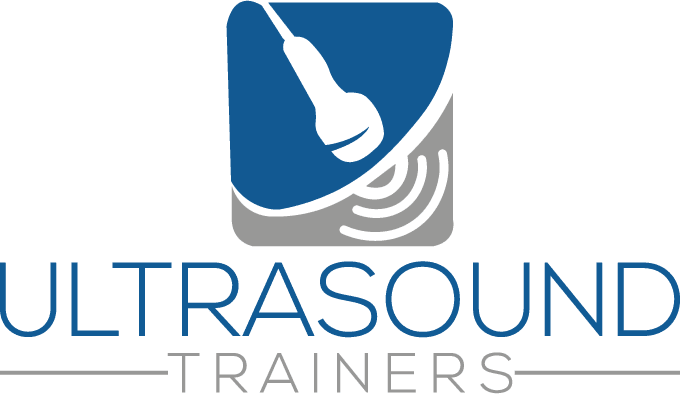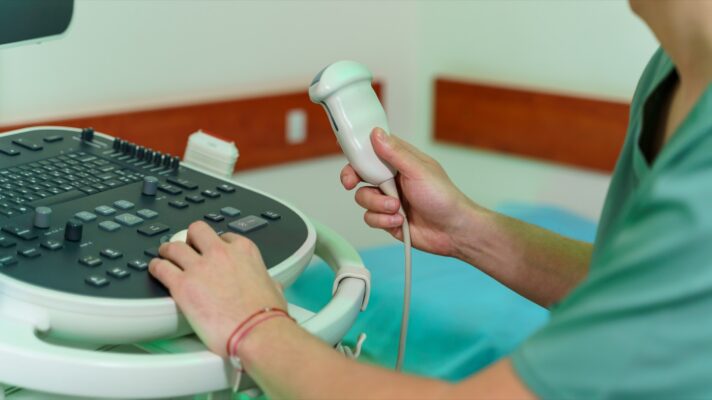Insurance Essentials for Elective Ultrasound Studios
Running an elective ultrasound business is exciting. From capturing memorable 3D 4D keepsake baby ultrasound images to providing families with cherished moments, your studio plays a special role. But along with these rewarding moments comes the responsibility to protect your practice. Proper ultrasound business insurance safeguards you from unexpected claims, equipment losses, cyber threats and liability concerns. In this long form guide we explain why insurance matters, outline the policies you need, share real world examples and reveal cost saving strategies so you can focus on offering unforgettable experiences rather than worrying about what happens if something goes wrong.

Why Insurance Matters for Elective Ultrasound Studios
Every ultrasound studio owner knows that providing elective sonography services involves more than just equipment and training. When starting an ultrasound business, you face daily risks—from equipment damage to data breaches to liability claims. Without the right coverage, a single lawsuit or cyber event can cripple your practice and derail your dreams of expanding to multiple locations or even franchising. By investing in ultrasound insurance you maintain peace of mind and demonstrate professionalism to patients, training partners and investors.
Insurance becomes even more crucial once you start offering advanced services like 3D 4D ultrasound scans, gender determination and HD live imaging. These next level offerings draw higher expectations and greater liability exposures. Imagine an expectant parent worried about data privacy after giving digital files. Or a scenario where a probe malfunction leads to equipment damage in a new 3D ultrasound studio. With appropriate coverage your elective ultrasound business stays protected against lawsuits, property loss and cyber threats so you can focus on growth.
Even if you operate as a small boutique offering keepsake baby ultrasound sessions, negligence claims or equipment failures can involve tens of thousands of dollars in legal fees. Consider a situation where a client slips in your waiting area or alleges misinterpretation of a scan. General liability insurance and professional liability policies help cover legal defense and settlement costs so that minor incidents do not become major financial disasters.
When exploring how to open a 3D ultrasound studio or scaling your brand across multiple locations, lenders and landlords often require proof of insurance. Proper coverage proves you are a responsible operator. In addition it can unlock lower rates on commercial leases or financing options for that 4D ultrasound machine you have your eye on. Lenders view comprehensive insurance as a sign of stability, making it easier to secure favorable terms when buying equipment or expanding your business.
Finally, cyber risks have escalated for elective ultrasound business owners who store patient data and digital images. A single malware attack can expose personal information or compromise equipment functionality. Cyber liability insurance covers breach response costs, notification requirements and potential regulatory fines. By including cyber coverage in your ultrasound business training programs you ensure students and clients alike understand the full scope of modern practice risks and the importance of data privacy.
Key Types of Insurance for Your Elective Ultrasound Business
When setting up an ultrasound studio, choosing the right mix of policies can feel overwhelming. Below we drill into the core insurance types every elective ultrasound operator should evaluate. Each section includes real world examples and insights on cost of starting an ultrasound business, elective ultrasound training requirements and important coverage elements.
General Liability Insurance
General liability insurance forms the foundation of any small business policy. It protects you if a client sues for bodily injury or property damage that happened on your premises. For an elective ultrasound studio this might include a pregnant mom slipping on a wet floor, or a visitor accidentally knocking over an expensive ultrasound machine.
Coverage typically includes legal defense fees, court judgments and settlement costs. Imagine a scenario where a malfunctioning door lock caused a minor accident in your lobby. Even if you believe you are not at fault, legal fees can quickly climb into the thousands. With general liability insurance you avoid tapping into personal savings to cover these expenses.
When you start a 3D 4D ultrasound business, consider adding an umbrella liability policy if you expect higher revenues or run multiple locations. An umbrella policy extends your liability limits beyond standard coverage. If a single claim exceeds your base policy limit, umbrella coverage absorbs the remainder up to its limit. This is particularly beneficial as you open new studios or offer elective ultrasound training classes, since more people on site increases risk exposure.
Costs for general liability vary by location and revenue. A small studio in a less populated area may pay as little as 5K per year for $1M/$2M limits. In contrast, a busy 4D imaging center in a major market might pay up to 15K or more annually. To keep premiums in check, maintain clean premises, train staff on safety protocols and conduct regular inspections.
Professional Liability Insurance
Professional liability insurance—also called errors and omissions insurance—covers claims arising from negligence, misinterpretation or failure to deliver promised services. In elective ultrasound studios this often relates to allegations of inaccurate readings, misdiagnosed fetal positions or missed anomalies.
Consider a case where a family claims your ultrasound operator missed a critical gender determination result. Even if the allegation is unfounded, defending against the lawsuit can cost tens of thousands. E O coverage addresses these situations by covering defense costs and settlements.
Many professional liability policies require documented elective ultrasound training or certification for staff. Insurance carriers view formal training and adherence to scanning protocols as risk reducers. Ultrasound business training programs that emphasize standard operating procedures and image documentation can lower your E O premiums—so invest in ongoing education for sonographers.
When budgeting, track your claims history and be prepared to show proof of training records. Professional liability for a small elective ultrasound studio might range from 1.5K to 6K per year depending on revenue and past claims. Consider bundling this coverage with general liability to access multi policy discounts.
Property Insurance
Property insurance protects the physical assets of your studio—equipment, furniture and building contents—against fire, theft, vandalism and other covered perils. Since a 4D ultrasound machine can cost 60K or more, securing adequate property coverage is essential.
Coverage typically includes replacement cost or actual cash value for your assets. Replacement cost ensures you receive enough funds to replace damaged equipment with new items. In rapidly evolving imaging technology it pays to opt for replacement cost so you can afford the latest 4D ultrasound machine rather than settling for outdated equipment.
If you lease your space, confirm whether your landlord’s policy covers building structure. If not, you may need separate building coverage in addition to contents. When negotiating a lease, ask for proof of the landlord’s policy. If they do not carry adequate coverage, build that cost into your operating budget.
To save on insurance premiums, invest in security features like alarm systems, fire suppression and secure storage for ultrasound probes. Carriers often reward studios that implement these controls with lower rates. If you are starting an ultrasound business on a tight budget, bundle your property and general liability policies to access multi line discounts.
Cyber Liability Insurance
As elective ultrasound studios transition to digital record keeping, cyber liability insurance is no longer optional. You may store ultrasounds, patient health data and payment information in cloud platforms or onsite servers. A single breach can expose sensitive data, trigger HIPAA fines and lead to costly litigation.
Cyber insurance typically covers breach notification costs, legal fees, regulatory fines and even extortion payments in ransomware attacks. Imagine a hacker locks down your practice management software right before a weekend of 3D 4D bookings. Cyber coverage helps pay for forensic experts to contain the breach and restore your systems quickly.
When evaluating policies, ensure coverage extends to both first party and third party expenses: first party covers the costs to investigate and restore your systems, while third party covers claims by affected clients. Ask insurers about vendor risk management requirements—some carriers mandate regular vulnerability scans or staff training on phishing awareness.
To reduce premiums, implement multi factor authentication, secure wi fi networks and encrypted databases for storing patient images. Basic cyber hygiene measures may earn you a discount of 10 to 20 percent on premiums. Including cyber insurance in your ultrasound business marketing tips can demonstrate to potential clients that you take data privacy seriously.
Workers Compensation Insurance
If you employ sonographers, administrative staff or receptionists, most states require workers compensation insurance. Coverage pays medical expenses and lost wages for employees who get injured or become ill from work related activities.
For an elective ultrasound studio, injuries might include a sonographer developing repetitive strain injury from prolonged scanning sessions or a staff member slipping while carrying supplies. Workers comp ensures your team receives proper care without exposing your practice to lawsuits.
Costs vary based on payroll and job classifications. Sonographers might carry a higher classification rate than front desk staff due to exposure to specialized equipment. To save, maintain an immaculate workspace with clear aisles and proper ergonomic training for ultrasonic probe handling.
If you offer elective ultrasound training classes, clarify whether instructors are independent contractors or employees. Misclassifying workers can lead to expensive fines and retroactive premiums. Consult legal counsel to structure contracts appropriately so that both your practice and trainers stay protected.
How to Evaluate Cost and Find Savings
Insurance can be one of the larger fixed costs when starting a 3D ultrasound studio. However, strategic shopping and risk management can keep premiums manageable. Below we highlight factors influencing cost, share negotiation tactics and present real world examples of elective ultrasound studios that saved thousands by bundling policies and improving safety efforts.
Revenue and Location Impact
Insurance carriers calculate premiums based on expected risk exposure. If you generate 250K in annual revenues offering elective ultrasound training and keepsake baby ultrasound sessions, carriers anticipate more foot traffic and thus higher liability risk. Compare that to a smaller practice generating 75K—premiums may be 40 to 60 percent lower.
Location also matters. A studio in a high crime or flood prone area typically pays more for property insurance. When scouting locations for your 4D imaging business, check crime maps and flood zones to avoid costly insurance surcharges. If you already signed a lease, consider adding extra security measures—like 24 hour surveillance cameras or reinforced entry doors—to negotiate lower rates.
To estimate premiums, request quotes from multiple carriers. Make sure to supply accurate financial projections and occupancy details. If you plan to expand to a franchise model or open multiple elective ultrasound studios, inquire about multi location discounts. Some insurers offer tiered pricing where the second location might cost 10 percent less per studio.
For example, Sunshine Ultrasound in Austin saved over 7K annually by bundling general liability, professional liability and property insurance with the same carrier. By committing to a three year term and demonstrating a clean claims history, they secured locked in rates even as their equipment inventory expanded.
Safety Protocols and Training
One of the easiest ways to reduce premiums is by proving you have robust safety protocols. Implement slip resistant flooring, clear signage in exam rooms and mandatory probe sterilization for every patient. Document these procedures and share them with insurers during the quoting process.
If you offer elective ultrasound training courses for aspiring sonographers, integrate safety training into the curriculum. Insurance carriers view training programs as risk mitigators. Your elective ultrasound training brochures may serve double duty: attracting students while demonstrating risk management to underwriters.
Many insurers offer premium credits for studios that maintain spotless safety logs and proactive maintenance schedules for their 4D ultrasound machines. Keep detailed maintenance records for every machine—including the 4D ultrasound machine and spare probes. Regular equipment calibration not only improves image quality but also signals to insurers that you prioritize safe operations.
Case Study: EverGlow Ultrasound in Denver reduced its property insurance by 12 percent after installing sprinkler systems and posting visible fire extinguishers in all scanning rooms. They submitted photos and inspection certificates to their insurer, which triggered an immediate rate reduction.
Bundling and Multi Policy Discounts
Bundling different lines of coverage under one carrier often yields significant savings. When you bundle general liability, professional liability and property insurance, insurers reward the reduced administrative overhead with discounts that can range from 5 to 20 percent.
If you already have a cyber liability policy in place, ask your carrier if they cover both first party and third party breaches. When carriers perceive you as a single risk entity rather than shopping multiple policies, they often lock in lower rates for a multi policy package.
When discussing bundle options, clarify whether your 4D ultrasound machine qualifies for equipment breakdown insurance under the same policy. Some insurers treat breakdown coverage separately. If bundled, you benefit from the convenience of a single claim process rather than coordinating across multiple policies.
In addition, look for elective ultrasound business owners associations that negotiate group rates for members. Membership fees may start at just 200 per year, but group purchasing can reduce your premiums by up to 15 percent.
Choosing the Right Insurance Providers
Selecting a carrier who understands elective ultrasound operations is critical. A provider familiar with 3D 4D ultrasound business risks will tailor policies that avoid coverage gaps and reduce unnecessary extras. Below are steps to vet carriers and questions to ask during the selection process.
Research Specialty Carriers vs General Carriers
General carriers like State Farm or Allstate write small business policies across many industries. They may not fully grasp the intricacies of a keepsake baby ultrasound practice. Specialty carriers or brokers that focus on medical or health care industries often have niche programs designed for elective ultrasound studios.
Search online directories for carriers with “medical office insurance” or “imaging center insurance” expertise. You can also ask for referrals from ultrasound business training programs or local business associations. If your peer network includes other elective ultrasound owners, inquire about their experiences—word of mouth remains a powerful vetting tool.
When comparing quotes, ensure each carrier uses the same assumptions. Provide identical revenue figures, square footage and equipment values so you can accurately compare premiums. If one carrier quotes 18K per year while another quotes 28K for similar coverage, dig deeper into policy limits, exclusions and deductibles rather than assuming the lower quote is better.
Tip: Ask carriers about their claim response times. A quick settlement or streamlined digital claims process matters when your elective ultrasound studio depends on specialized equipment. If a 4D ultrasound machine goes down, you want your carrier to expedite replacement so you minimize downtime.
Verify Coverage Limits and Exclusions
When reviewing policies, pay close attention to sub limits and exclusions. For example some property policies limit coverage for electronic data or electronic media. If your practice stores hundreds of scans digitally, you need a separate cyber policy or addendum to fully protect that data.
General liability policies often exclude injury claims tied to professional services. That’s why you need both general and professional liability. Likewise confirm whether your professional liability policy covers claims made after the service date, known as tail coverage. If you switch carriers, tail coverage ensures you remain protected for previous scanning sessions.
Check for equipment breakdown coverage too. Standard property policies may not cover mechanical or electrical failures of your ultrasound machine. Equipment breakdown or boiler and machinery insurance covers repair or replacement costs when a pipe bursts in your building or a circuit overload damages your imaging system.
Finally, inquire about vendor coverage. If you buy or lease a 4D ultrasound machine from a third party, they may require you to maintain specific limits or list them as additional insureds. Failure to comply can lead to denied claims or termination of your lease agreement.
Real World Case Studies
To bring these concepts to life, here are two case studies showcasing how elective ultrasound studios navigated insurance choices, saved money and recovered from unexpected events.
Case Study 1: Crystal Clear Imaging, Baton Rouge
Crystal Clear Imaging opened as a boutique elective ultrasound studio offering HDLive and gender determination scanning in Baton Rouge. With a small team of two sonographers and one receptionist, they projected 150K in first year revenues. When sourcing insurance, they compared three specialty carriers recommended by their ultrasound business training program.
They opted for Carrier A which offered a bundled policy: general liability, professional liability and property coverage including equipment breakdown. Their annual premium was 12K with 1M per occurrence liability limits and 500K in professional liability—sufficient given their low initial scan volume. Crucially they secured replacement cost for their refurbished 4D ultrasound machine valued at 50K.
Six months later, a severe storm caused a minor flood in their lobby damaging the floor and a portion of their equipment. Their carrier expedited an adjuster visit within 24 hours. After a brief negotiation, measures included replacing damaged floor tiles and repairing the ultrasound machine monitor, costing 8K. Insurance covered these costs minus a 1K deductible. Without coverage, the repairs would have wiped out two months of profits.
Crystal Clear Imaging also avoided premium hikes despite the claim by maintaining updated risk controls. They installed additional flood sensors and relocated critical electronics. At renewal, their carrier offered a 5 percent discount for improved risk posture.
Case Study 2: Family Glow Ultrasound, Portland
Family Glow Ultrasound in Portland began as a small home based 3D elective ultrasound studio. As their reputation grew, they moved into a commercial suite and started offering prenatal education workshops. When they applied for commercial insurance, general carriers quoted 10K annually for basic liability and property insurance. However, these policies excluded cyber liability and had limited professional liability.
Family Glow switched to a medical focused carrier recommended by their local business association. They purchased a combined professional liability and cyber policy for 3K annually and added property coverage for 55K in equipment at 1.2K per year. Total annual spend was 9.5K—500 less than the general carrier quote. The local carrier also offered complimentary risk management webinars focused on HIPAA compliance and data security.
One year later a cyber hacker infected their practice management software. All patient ultrasound images were inaccessible for 48 hours. Their cyber insurer immediately provided forensic experts to resolve the breach and paid client notification costs. Total claim payout was 25K, covering ransom demands and legal fees. Family Glow resumed normal operations within days, preserving their reputation.
Because they invested in ongoing HIPAA and cybersecurity training for staff, no fines were levied. Their insurer credited them with a 10 percent renewal discount for maintaining strong cyber hygiene.
Steps to Secure Your Elective Ultrasound Studio Insurance
Now that you understand essential coverage types and cost drivers, follow these steps to secure the right policies for your elective ultrasound studio:
- Assess Your Risks: List all potential exposures: client slip and fall, misdiagnosis allegations, data breaches, equipment breakdown, and employee injuries. Rate each risk by likelihood and potential cost.
- Gather Documentation: Compile financial projections, equipment inventories, safety protocols and training records. Insurers base quotes on accurate data so prepare thorough documentation.
- Request Multiple Quotes: Solicit quotes from at least three carriers—two general carriers and one specialty carrier. Ensure quote comparisons use the same coverage limits and deductibles.
- Evaluate Policy Details: Review coverage limits, sub limits, exclusions and deductibles for each quote. Pay attention to tail coverage for professional liability and vendor requirements for equipment leases.
- Implement Risk Controls: Install slip resistant flooring, alarm systems, fire suppression, secure data storage and multi factor authentication. Present these measures to carriers to lower premiums.
- Bundle Policies When Possible: Bundle general liability, professional liability, property and cyber policies under one carrier to qualify for multi policy discounts.
- Review Annually: As your ultrasound business grows—by adding new locations or upgrading to a 4D ultrasound machine—update your insurer and adjust coverage accordingly. Regular reviews ensure you avoid being underinsured.
Common FAQs About Ultrasound Business Insurance
Do I need insurance if I only offer keepsake baby ultrasound sessions?
Yes. Even if you specialize in non diagnostic keepsake ultrasounds, you remain vulnerable to general liability claims (like slip and falls) and professional liability claims if a client alleges misinterpretation of images. Property and cyber coverage may also be relevant if you store client images digitally or if you own expensive equipment.
How much coverage do I need for a 4D ultrasound machine?
A typical 4D ultrasound machine can cost between 60K and 120K. Opt for replacement cost coverage so that in the event of damage you receive funds to buy a new comparable model rather than getting an amount depreciated based on age. Discuss with your insurer whether to insure the machine as part of a blanket limit or via a scheduled equipment endorsement.
Can I reduce premiums by taking online safety courses?
Yes. Many insurers offer discounts if you or your staff complete recognized risk management or cyber security courses. Check if your field offers elective ultrasound training programs that include safety modules recognized by carriers. Document course completions and share certificates during the quoting process.
Does my lease require any specific insurance limits?
Often yes. Landlords typically require proof of general liability insurance with limits of at least 1M per occurrence and 2M aggregate. If you operate multiple locations, verify each lease as coverage requirements can differ. Providing a certificate of insurance naming the landlord as additional insured may be necessary.
Is cyber liability insurance mandatory for my studio?
While not mandated by law for most non medical practices, cyber insurance is strongly recommended. If you handle any protected health information under HIPAA or store credit card data, a breach can lead to notification costs, regulatory fines and potential lawsuits. Cyber coverage helps mitigate these financial risks.
Actionable Takeaways
- Start Risk Assessment Early: Before signing a lease or ordering that 4D ultrasound machine, identify your top risks and gather necessary documentation.
- Bundle to Save: Shop for combined general liability professional liability, property and cyber policies under one carrier to unlock multi policy discounts.
- Invest in Safety and Training: Reduce premiums by maintaining safe premises and enrolling staff in elective ultrasound training with a safety component.
- Review Policies Annually: Update coverage as your elective ultrasound business grows, ensuring you avoid gaps and maintain adequate limits.
- Leverage Associations: Join local business groups or elective ultrasound owners associations for group purchasing power and premium credits.
Insurance need not be a confusing expense when you follow a structured approach. By understanding the essential policies—liability, property, cyber and workers compensation—you shield your elective studio from unexpected costs. Implementing proactive risk controls and leveraging bundling discounts keeps rates affordable and demonstrates professionalism to clients, partners and lenders. Use this guide as your roadmap to building a resilient ultrasound business—one protected from the unexpected so you can continue creating cherished memories for families every day.
Call to Action: Are you ready to secure the right insurance for your elective ultrasound studio? Share your questions or experiences in the comments below. If this article helped you, please share on social media and help other studio owners protect their dreams.
Learn More About Ultrasound Training Learn More About Opening an Ultrasound Studio











